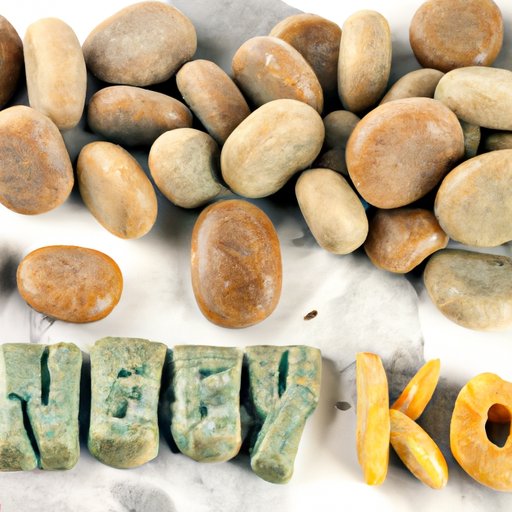
Introduction
If you’ve ever experienced the agonizing pain of kidney stones, you know firsthand how unbearable it can be. Kidney stones are small, hard deposits that form in your kidneys, and can often be due to diet and lifestyle habits. Fortunately, with the right diet and lifestyle changes, it is possible to prevent and manage kidney stones. In this article, we’ll explore the foods you should avoid and eat when you have kidney stones, along with expert tips on maintaining proper hydration and snacking habits to reduce the risk of recurring kidney stones.
The Top 7 Foods to Avoid and Eat When You Have Kidney Stones
When you have kidney stones, it’s important to avoid certain foods that may increase your risk of developing more stones. Some of the top foods to avoid include:
- Spinach
- Rhubarb
- Beets
- Chocolate
- Salt
- Processed foods
- Sugary drinks
On the other hand, there are foods that can help prevent and manage kidney stones. Some of the top foods to eat include:
- Watermelon
- Citrus fruits
- Leafy greens
- Cucumber
- Broccoli
- Almonds
- Low-fat dairy
These foods are beneficial due to their high water and fiber content, which helps flush out toxins and prevent the formation of stones.
How Diet Can Help Prevent and Treat Kidney Stones
The foods that you eat play a significant role in preventing and treating kidney stones. For instance, consuming too much sodium can lead to calcium buildup in your urine, which can increase your risk of developing stones. On the other hand, maintaining a balanced diet that’s rich in fiber, vitamins, and minerals can help prevent the formation of stones. Additionally, avoiding foods that trigger the formation of stones is essential for those who are prone to experiencing kidney stones.
The Role of Calcium and Oxalate in Kidney Stones: What to Eat and What to Avoid
Calcium and oxalate are two substances that can contribute to the development of kidney stones. Oxalate is a compound found in many fruits and vegetables, while calcium can form crystals when there is too much of it in your urine. However, it’s important to note that consuming too little calcium can also increase your risk of developing stones. To maintain proper calcium and oxalate levels when you have kidney stones, it’s important to eat foods that are high in calcium, such as low-fat dairy products, and to avoid foods that are high in oxalate, such as beets, spinach, and rhubarb. Additionally, drinking enough water and consuming foods that contain citric acid, like lemons and oranges, can also help prevent the formation of kidney stones.
Smart Snacking for Kidney Stone Sufferers
Snacking is an essential part of maintaining proper nutrition throughout the day, especially for those suffering from kidney stones. Eating small, frequent meals throughout the day can help prevent blood sugar spikes and reduce the risk of developing stones. Furthermore, choosing healthy snack options that are rich in fiber and low in sugar can help keep your digestive system healthy, which can reduce the risk of developing kidney stones. Some good snack options for kidney stone sufferers include fresh fruit, low-fat cheese, and whole-grain crackers.
The Connection Between Hydration and Kidney Stones: Foods and Drinks to Help Keep You Stone-Free
Hydration is essential for the prevention of kidney stones. Drinking enough water can help flush out toxins and debris from your kidneys, which can reduce the risk of developing stones. Additionally, certain foods and drinks can help keep you hydrated and prevent the formation of stones. Some good options include watermelon, cucumber, and herbal tea. However, it’s important to avoid sugary drinks and alcohol, which can dehydrate you and increase your risk of developing stones.
Tips for Adapting Your Diet to Prevent Kidney Stones from Recurring
Preventing kidney stones from recurring is essential for those who are prone to this condition. Some general tips for adapting your diet to reduce the risk of developing kidney stones include drinking enough water, avoiding sugary drinks and alcohol, eating a balanced diet that’s rich in fiber and low in sodium, and working with a healthcare provider or dietitian to develop a personalized plan that meets your specific needs.
Conclusion
If you suffer from kidney stones, your diet plays a key role in preventing and managing this condition. By avoiding certain foods and incorporating healthy options into your diet, you can reduce your risk of developing kidney stones and improve overall kidney health. By taking control of your diet and making healthy choices, you can prevent kidney stones from impacting your life.





